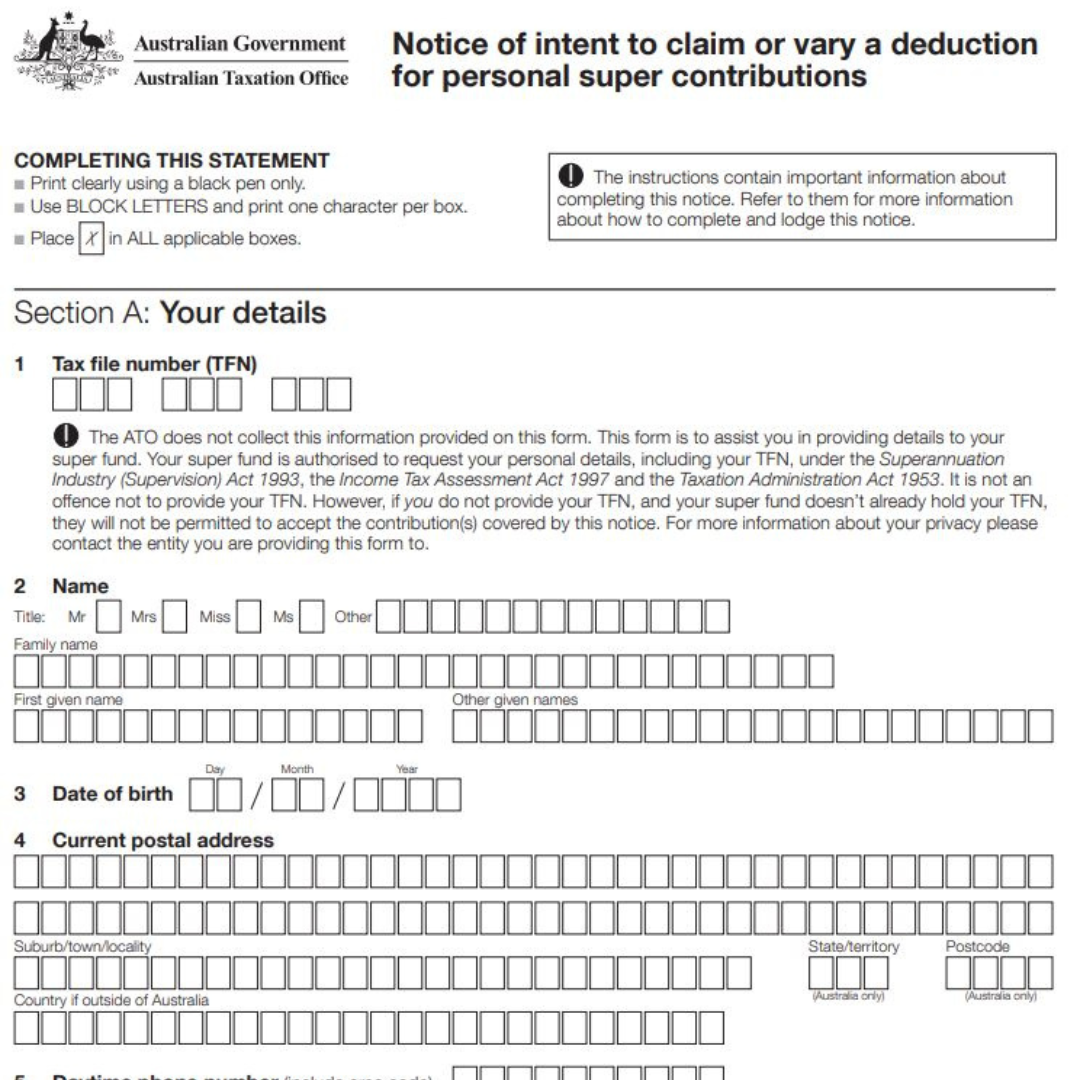The amount you can contribute to superannuation will increase on 1 July 2024 from $27,500 to $30,000 for concessional super contributions and from $110,000 to $120,000 for non-concessional contributions.
The contribution caps are indexed to wages growth based on the prior year December quarter’s average weekly ordinary times earnings (AWOTE). Growth in wages was large enough to trigger the first increase in the contribution caps in 3 years.
Other areas impacted by indexation include:
- The Government super co-contribution – Income threshold
- The super guarantee maximum contribution base (the limit for compulsory super guarantee payments)
- The tax-free thresholds for redundancy payments
- The CGT contribution cap (amount that can be contributed to super following the sale of eligible business assets

If you know you will have a capital gains tax liability in a particular year, you may be able to use ‘catch up’ contributions to make a larger than usual contribution and use the tax deduction to help offset your capital gain tax bill.
But, this strategy will only work if you meet the eligibility criteria to make catch up contributions and you lodge a Notice of intent to claim or vary a deduction for personal super contributions, with your super fund.
Using the Bring Forward Rule
The bring forward rule enables you to bring forward up to 2 years’ worth of future non-concessional contributions into the year you make the contribution – this is assuming your total superannuation balance enables you to make the contribution and you are under age 75.
If you utilise the bring forward rule before 30 June, the maximum that can be contributed is $330,000. However, if you wait to trigger the bring forward until on or after 1 July, then the maximum that can be contributed under this rule is $360,000.
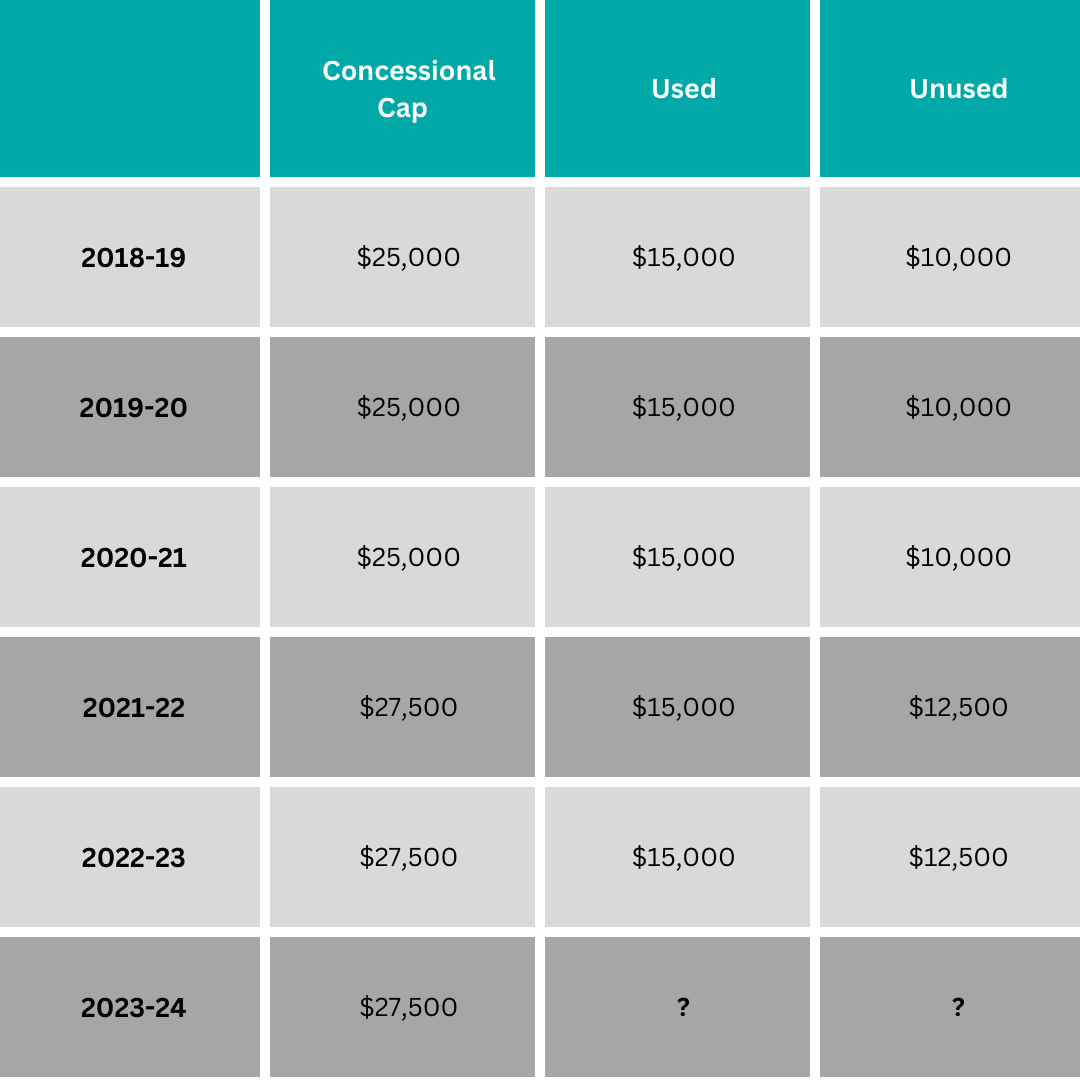
‘Catch Up’ Contributions
If your super balance is below $500,000 on the prior 30 June, and you want to quickly increase the amount you hold in super, you can utilise any unused concessional super contributions amounts from the last 5 years.
Let’s look at the example of Gary who has only been using $15,000 of his concessional super cap for the last few years. Gary’s super balance at 30 June 2023 was $300,000, so he is well within the limit to make catch up contributions.
Gary could access his $27,500 concessional cap for 2023-24 plus the unused $55,000 from the prior 5 financial years.
If Gary doesn’t access the unused amounts from 2018-19 by 30 June 2024, the $10,000 will no longer be available.
Transfer Balance Cap Unchanged
The general rate for the transfer balance cap (TBC), that limits how much money you can transfer into a tax-free retirement account, will remain at $1.9 million for 2024-25. The TBC is indexed by the December consumer price index (CPI) each year.
Revised stage 3 tax cuts confirmed for 1 July 2024
The revised stage 3 tax cuts have passed Parliament and will come into effect on 1 July 2024.
Before the new tax rates come into effect, check any salary sacrifice agreements to ensure that they will continue to produce the result you are after.
Resident individuals
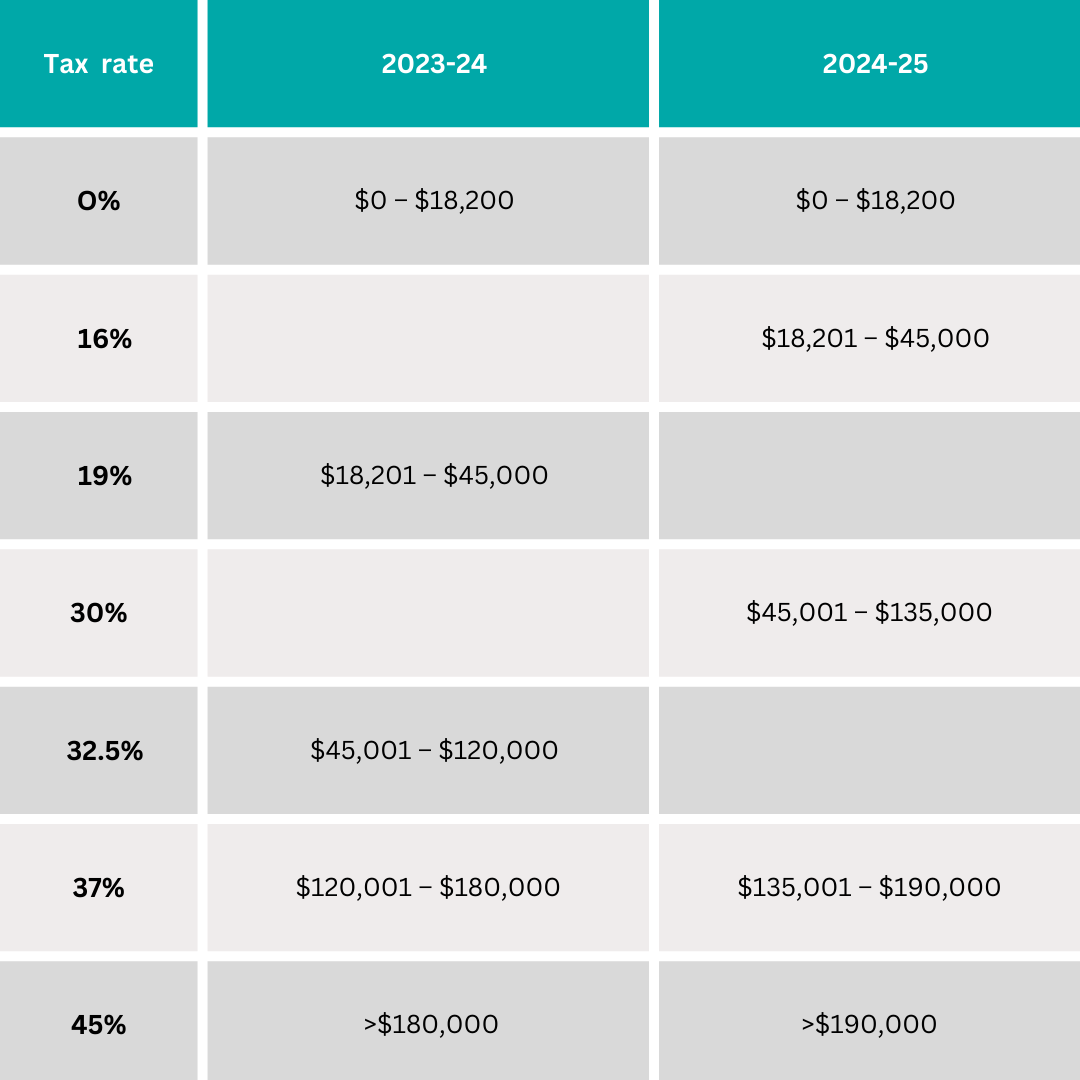
Non-resident individuals
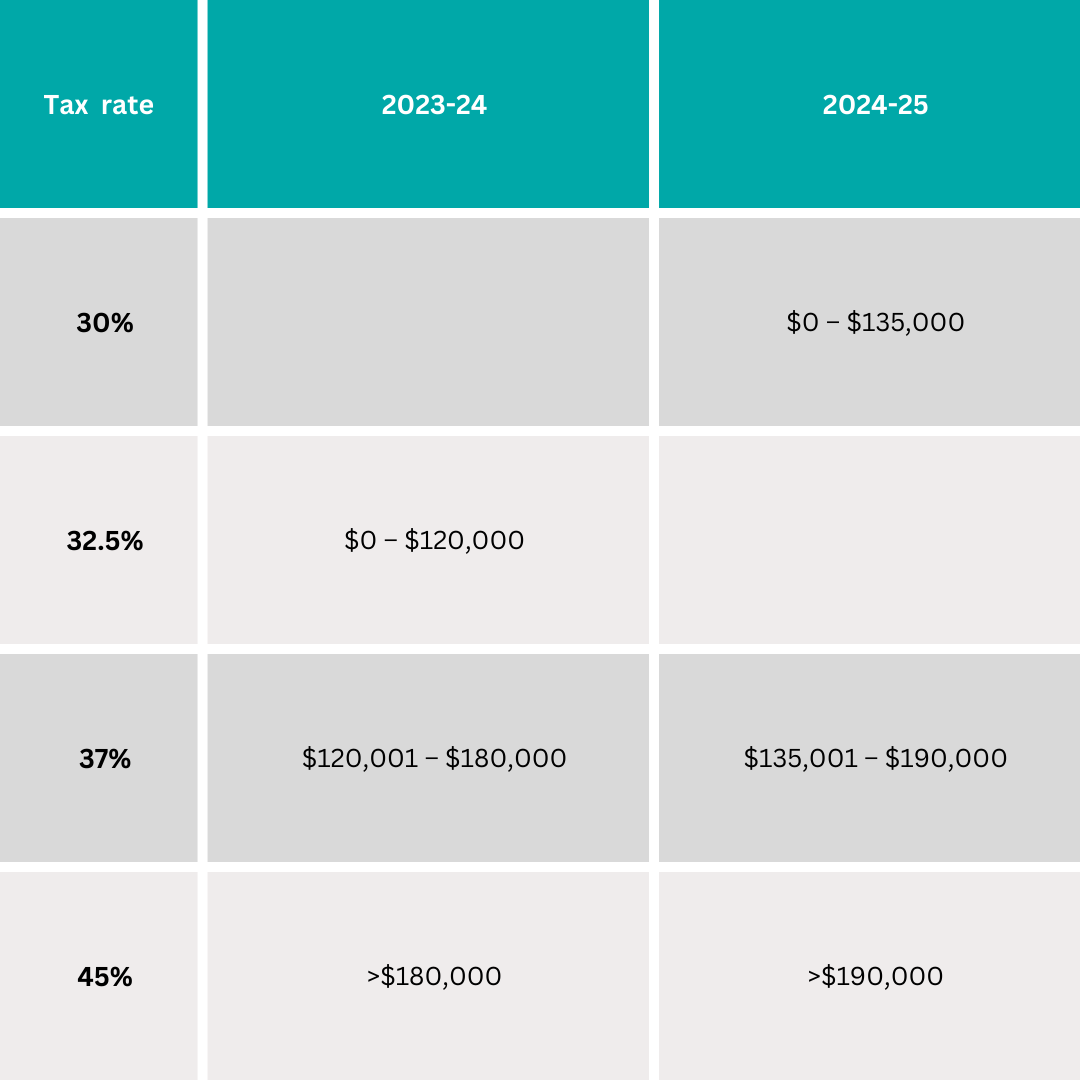
Working holiday markers
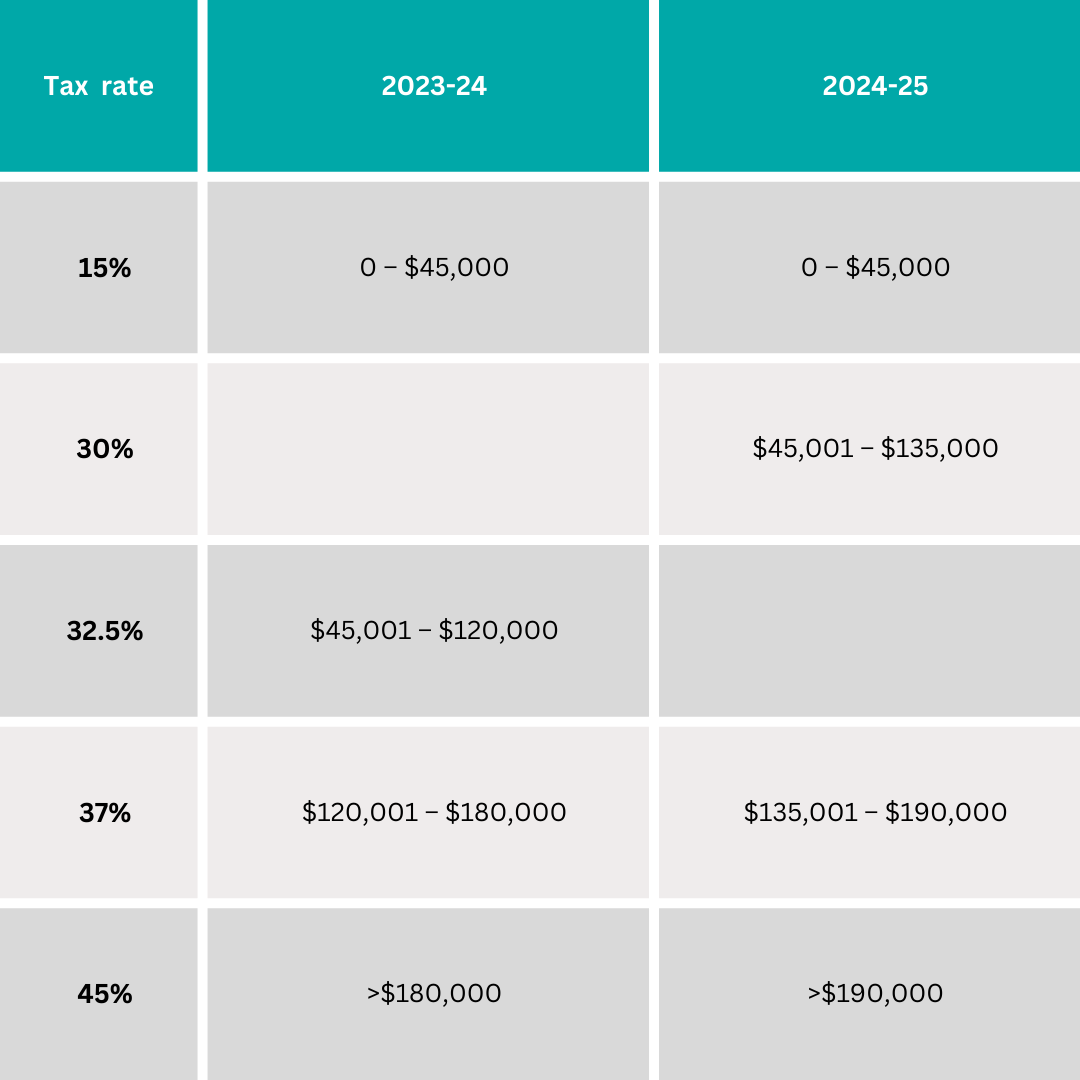
Contact us
We’re here to help answer your questions. Business matters can be complicated, our experts are on hand to help inform you of every aspect regarding your topic. We take great pride in using our expertise for you and look forward to hearing from you.
Business Hours
Open – Mon-Fri 8.30-5.00
Closed – Sat-Sun and Public Holidays
Contact Us
Viden Insights
ATO Warns to Watch Out for Scams
ATO Warns to Watch Out for Scams Chat with us today With scams [...]
Finfluencers: Bad Tax Advice Could Cost You Thousands
Finfluencers Bad Tax Advice Could Cost You Thousands Chat with us today They’re [...]
From July 2025, ATO Interest no Longer Deductible
ATO Interest Charges Will No Longer Be Deductible from 1 July 2025 Chat with us today [...]
Wait to Lodge 2025
Don’t Lodge Your 2025 Tax Return Too Early Chat with us today Original [...]
Division 296 Tax
Division 296 Tax Will It Affect You? Chat with us today The [...]

